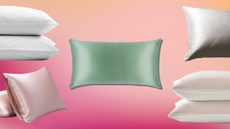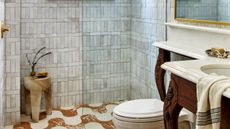4 Things the Brits do Differently to Americans When Setting a Table That You Probably Never Knew
There are subtle but significant differences between US and British table settings, but what are they? We ask the experts
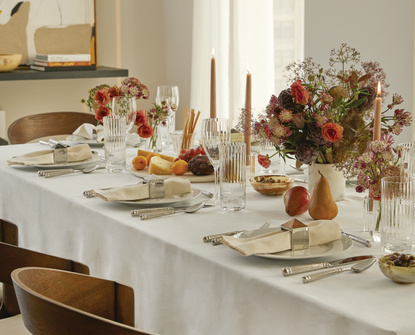

You might not have considered the minute differences in styles of table settings before, but there are subtle yet distinct distinctions when it comes to cutlery, depending on where you are in the world.
Generally speaking and across the board, the amount of silverware at each plate reflects the number of courses that will be served. In both the States and Britain, the idea is to start from the outside and work your way toward the center where your plate sits. Glassware is another place where there are no differences between the two styles. Set to the right, create a neat space for three glasses, and line them up with a water glass, red wine glass and white wine glass.
To help you get to grips with setting your table in line with where you are in the world, we've outlined the major differences to pay close attention to. With these top tips from the etiquette experts, your dining room will be fit for a feast and ready for guests in no time.
1. Americans place the napkin to the left

One key area where you might notice a major difference in table setting is the placement of the napkin or serviette. 'There isn’t too much difference between a British and American table setting,' advises luxury linens stylist and designer, Liz Barbatelli. 'But the Brits rarely, or never, use a service plate and place the napkin in the middle of the place setting. Americans set the napkin to the left of the silverware most often.'
More and more, however, homeowners are feeling liberal with the placement of their cutlery and table settings. Especially come the festive period, when we're likely to feel inspired by dining table trends and use our napkins as a decorative festive tool, swirling your napkin into a Christmassy shape or folding it into a mini tree for the table. If there is no particular theme to your dinner party, the napkin is purely functional.
2. Brits place dessert cutlery on the side

Another key difference is when it comes to placing your dessert cutlery. American settings place dessert silverware above the plate. 'Meanwhile, Brits put dessert forks and knives on the sides of the plate (or leave them out entirely, instead setting those pieces after the main course is cleared),' says Liz.
In the States, the style is to place your dessert fork above and closest to the paint, pointing towards the glassware. Above the fork, the American style dictates that you place your spoon slightly above, facing the other direction.
‘When it comes to dessert utensils, if serving dessert, place the dessert fork or spoon parallel to the dining table edge, with the fork tines or spoon bowl pointing left,’ adds Stacy Dackson, associate designer at New York Interior Design.
In the UK, it's rare to see the dessert fork and spoon placed above the plate in this fashion, although it isn't totally unheard of as the Brits adopt more and more US table customs. Instead, the dessert fork is next to the plate on the left and the dessert spoon is on to the right of the plate. The dessert fork and spoon are the furthest from the plate, reflecting how this course is the last to be eaten. There may also be a small knife between the dessert spoon and the side plate, typically saved for a final cheese or fruit course.
3. Americans serve buffet style
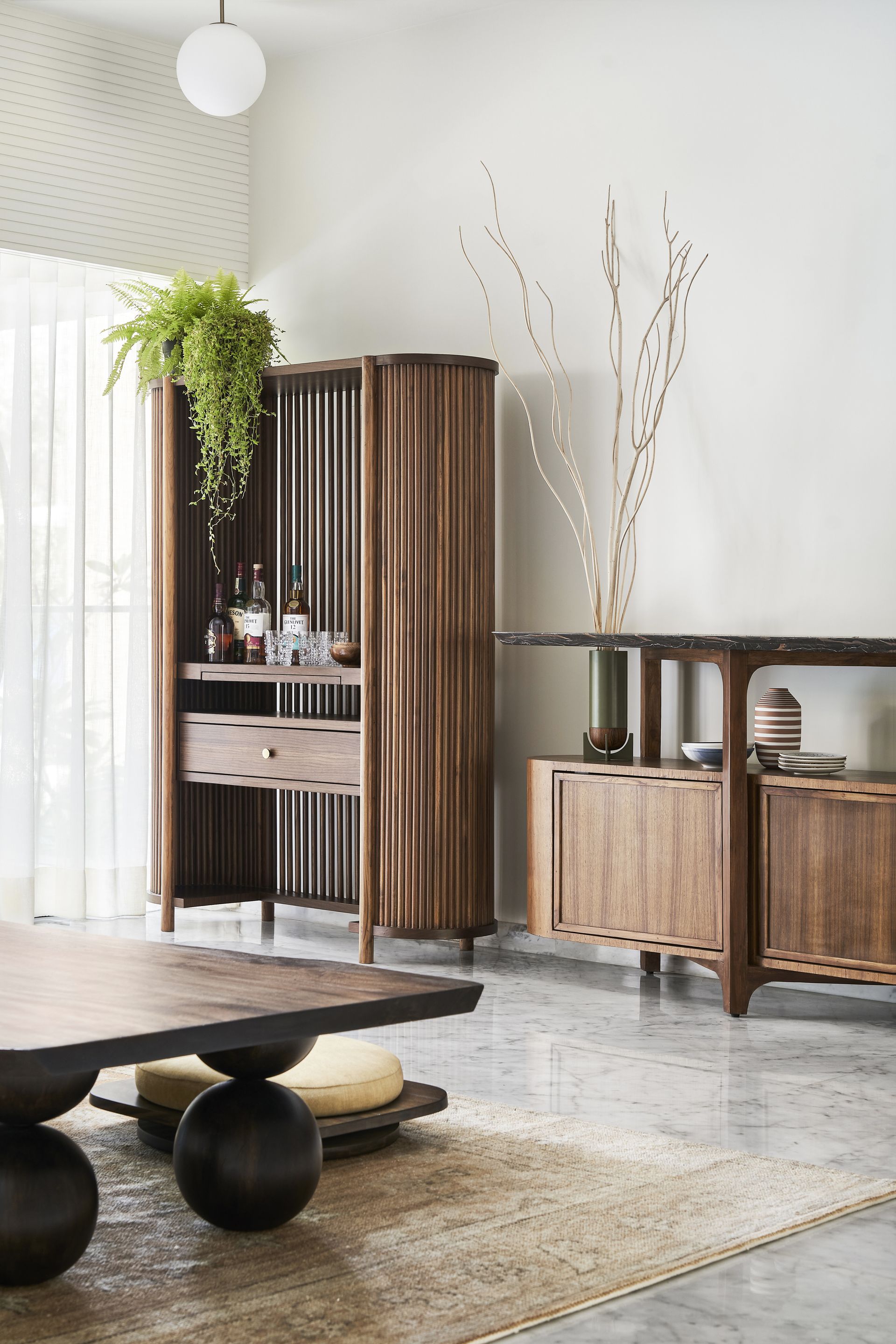
When it comes to dishing up, there are also different levels of formality to be expected from the Brits and the Americans. 'Brits typically prefer the host serving from his or her place at the table or a designated server for more individualized service,' says Liz.
'Meanwhile, most Americans prefer to serve using a dining room buffet style or family-style setting (plating all the food on platters for passing), which works best with a large table or sideboard to comfortably suit the abundant gathering of plates.'
However, while tradition suggests that Brits enjoy a bit more formality at the table, more and more, we're seeing the occasion dictating the level of formality, rather than the country.
4. The 'cut-and-switch' method
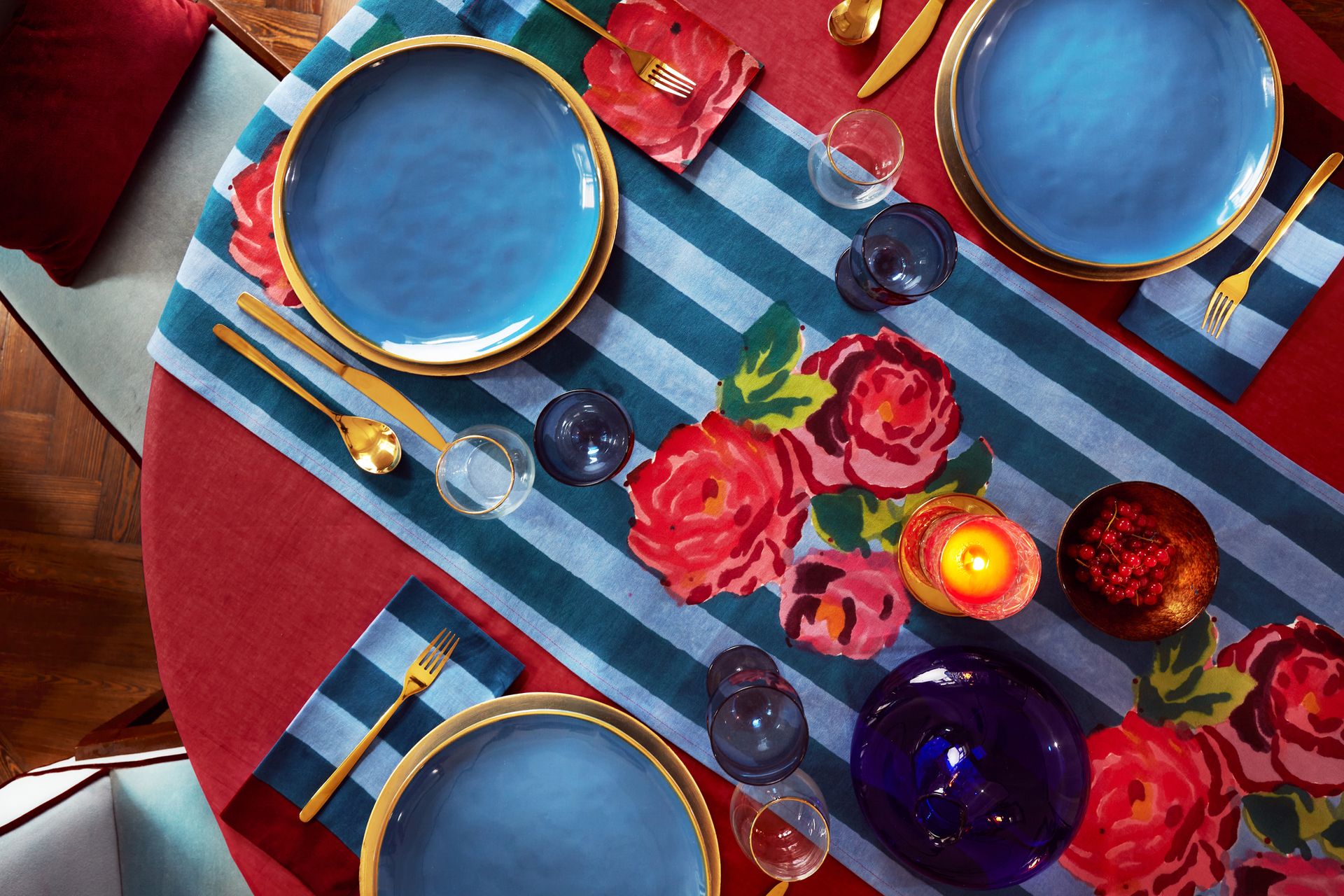
Finally, there is a difference in how the US and UK use and engage with a fork. The 'cut-and-switch' is more popular in the States. THis method dictates that diners start with the fork in their left and knife in their right hand, before switching the fork to the right hand after cutting, with prongs facing upward.
In the UK and Europe, the fork stays in the left hand throughout the meal, with the knife used to push the food onto the fork. In the UK version, the fork's prongs remain downwards. More and more, UK and Europe have been adopting the 'cut-and-switch' tactic, aligning with a more modern dining room set-up.
3 Dining Table Essentials For Brits and Americans

Material: 100 percent stoneware
Price: $20.99

Material: Cotton and linen blend
Price: $12

Material: Stainless steel
Price: $10.97
Be The First To Know
The Livingetc newsletter is your shortcut to the now and the next in home design. Subscribe today to receive a stunning free 200-page book of the best homes from around the world.

Oonagh is a content editor at Livingetc.com and an expert at spotting the interior trends that are making waves in the design world. Writing a mix of everything and everything from home tours to news, long-form features to design idea pieces on the website, as well as frequently featured in the monthly print magazine, she's the go-to for design advice in the home. Previously, she worked on a London property title, producing long-read interiors features, style pages and conducting interviews with a range of famous faces from the UK interiors scene, from Kit Kemp to Robert Kime. In doing so, she has developed a keen interest in London's historical architecture and the city's distinct tastemakers paving the way in the world of interiors.
-
 What are the Most Comfortable Pillowcases? From Temperature Regulating to the Best for Your Skin
What are the Most Comfortable Pillowcases? From Temperature Regulating to the Best for Your SkinWhen you're looking for comfort in your pillowcases, material matters. These are the best you can buy
By Faaizah Shah Published
-
 5 Simple, but Genius Bathroom Layout Tricks That Will Make Your Space Work so Much Harder
5 Simple, but Genius Bathroom Layout Tricks That Will Make Your Space Work so Much HarderSmall switches to how you lay out your bathroom that help make the most of a small space
By Luke Arthur Wells Published
